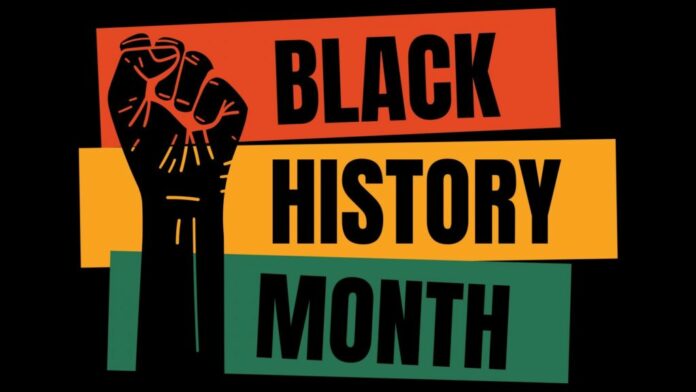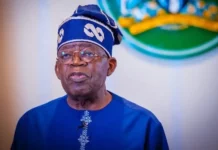Black History Month is in full swing in the UK, and it brings back memories of my first encounter with this celebration in 2018. While Black History Month is observed at various times globally (October in the UK and February in the US), its core purpose remains consistent: to celebrate the rich history and achievements of Black individuals worldwide. This involves recognizing the struggles, sacrifices, accomplishments, and contributions of Black communities and individuals throughout history.
For many, especially African Americans, Black Britons, Afro-Europeans, and Black Caribbeans, this is a significant and highly cherished occasion. However, for Africans, particularly those who recently moved abroad, the concept and significance of this event may not immediately resonate with them. After all, many Africans haven’t experienced the unique challenges faced by those in white-dominated societies, such as the historical context of the transatlantic slave trade and the ongoing struggles against oppression, segregation, and discrimination.
This is not to say that we Africans don’t have our own challenges when it comes to interactions with people of European descent. However, these interactions may not always involve the same forms of racism, especially if we don’t leave Africa. That’s why the experiences of the African diaspora in predominantly white societies can seem foreign to many Africans who have recently entered these diverse cultural landscapes.
Nevertheless, Black History Month is a remarkable celebration that every person of African descent should deeply engage with and actively support to improve the living conditions and experiences of Black people worldwide. In this piece, I will guide you through the essence of Black History Month and why it should be meaningful to you as an African, whether you are within Africa or abroad.
Black History Month: How Did It All Begin?
Black History Month, also known as African-American History Month, is an annual celebration that recognizes significant Black individuals and events throughout the history of the African diaspora. It originated in the United States but has since become a global observance, with countries like the UK, Canada, Ireland, France, Germany, and more recently, seven African nations participating. In the United States and Canada, it is celebrated in February, while the UK and other European countries commemorate it in October. This month serves as a platform for Black communities to share, honor, and explore the profound influence of Black heritage and culture.
The history of this significant celebration can be traced back to the 1920s, precisely in 1926 when Carter G. Woodson, often regarded as the father of Black history, alongside the Association for the Study of Negro Life and History (ASNLH) established “Negro History Week.” Born in Virginia in 1875 to parents who had once been enslaved, Carter G. Woodson encountered significant obstacles when it came to his education and career prospects. Nevertheless, his unwavering determination drove him to save money from his coal mining job, enabling him to attend one of the few high schools dedicated to Black students.
He furthered his education and obtained a Ph.D. in History from Harvard University. Later, he joined the faculty at Howard University as a professor, where he advocated passionately for the inclusion of Black history in educational curricula. His dedication resulted in the establishment of the initial Black History Week, taking place in February to coincide with the birthdays of Abraham Lincoln and Frederick Douglass, both influential figures in the abolition of slavery in the United States. This annual celebration continued until the 1970s when it gained official recognition as Black History Month in 1976. Additionally, Juneteenth, celebrated every June 19th, marks the end of slavery in the United States.
On the other hand, the United Kingdom did not establish its first Black History Month until 1987. This significant occasion coincided with the 150th anniversary of the abolition of slavery in the Caribbean and was initiated by Akyaaba Addai-Sebo. Much like Woodson’s journey, Addai-Sebo was motivated by the aim of combatting racism and commemorating the history of Black individuals. October was designated as Black History Month in the UK, a time when African leaders traditionally gathered to deliberate significant matters and also coincided with the start of the school year.
How Is It Celebrated in The US and The UK?
While both the US and the UK commemorate Black History Month to honor the accomplishments of prominent Black figures in the history of the African diaspora, there are notable differences in how they celebrate this occasion. Beyond the obvious distinction in the timing of their celebrations, the methods employed to mark the event also differ.
In the United States, Black History Month is characterized by educational programs in schools and universities. These initiatives have the primary objective of enlightening students and the broader Black community about the remarkable achievements and contributions of African Americans. Moreover, the celebration encompasses a wide array of activities, including cultural performances, historical exhibitions, community events, and literary and cinematic presentations.
In the UK, the observance similarly involves educational programs in schools and universities. However, the emphasis here is on educating students and the wider Black community about Black British History and the invaluable contributions of Black individuals to the country. The celebration extends to arts and culture exhibitions, conferences, discussions, online and virtual events, community engagement, and campaigns to raise political and social awareness.
These variations highlight the distinct approaches taken in the US and the UK to celebrate Black History Month, each deeply rooted in its unique historical and cultural context.
Why Should You Care About Black History Month As a Black African?
The essence of Black History Month, whether you’re in Africa or abroad, may not always be crystal clear, but it’s a celebration that holds profound significance for all of us. Here are five compelling reasons why every Black African should actively engage in this commemoration:
1. Preserving African Heritage
Black History Month provides a unique opportunity to showcase and celebrate the richness of African culture, a culture that has often been misunderstood and underrepresented worldwide. Many misconceptions about Africa and its people have persisted for far too long, influencing global perceptions of Africans both at home and abroad. By embracing and celebrating Black History Month, we can educate the world about the diverse tapestry of Africa, its myriad native languages, time-honored traditions, and ancestral narratives. Above all, it fosters a sense of identity, belonging, and the vital preservation of our cultural heritage.
2. Acknowledging Global African Achievements
Africa has long been a wellspring of talent, innovation, and excellence and Africans have continuously left an indelible mark on the world, with exceptional achievements in science, the arts, leadership, academia, and activism. As a result, Black History Month serves as a powerful occasion to reflect upon and celebrate these remarkable contributions. Recognizing the accomplishments of African scientists, artists, leaders, scholars, and activists instills a sense of pride and motivation, reinforcing our legacy of global excellence.
3. Empowering the Next Generation
Many African youth, both on the continent and in the diaspora, grapple with the enduring consequences of a tainted Black identity, ongoing discrimination, and limited economic opportunities. Black History Month offers us an avenue to inspire and challenge these stereotypes and adversities through stories of resilience, innovation, and triumph. Instead of succumbing to narratives of slavery and lowly status, these stories should serve as wellsprings of strength and inspiration, nurturing self-worth and the determination to excel regardless of the challenges life presents.
4. Solidarity with the African Diaspora
Common challenges, such as racism, discrimination, inequality, social injustice, and limited access to economic opportunities, are globally shared by Black people around the world. As such, Black History Month serves as a pivotal moment for all of us to connect, bond, and stand together in the fight for a better world. It also offers an opportunity for Africans to learn about the struggles and unique experiences of the African Diaspora, fostering mutual support and shared commitment to addressing issues like police brutality, social injustice, and systemic racism. Whether in Africa or abroad, it enables us to stand in solidarity with our brothers and sisters, advocating for equal and just treatment and amplifying the global voice against racial discrimination.
5. Championing Social Change
Black History Month is not merely about promoting our African ancestry, and history, and celebrating Black achievements. It’s a powerful call to action, urging every Black person to take an active role in addressing contemporary challenges faced by Black communities worldwide. This means advocating for equal access to economic opportunities, fighting against racism and injustice, and promoting the empowerment of Black people. Black History Month serves as a catalyst for social change, calling upon Black individuals to unite, mobilize, and champion real impact and change within their communities and societies.
In essence, Black History Month offers a time for reflection, empowerment, unity, and action. It is an opportunity to connect with our roots, celebrate our achievements, and work towards a brighter future for all Black Africans, regardless of where we call home.
How Can You Get Involved in Black History Month?
Whether you’re in Africa or living abroad, there are numerous ways for Black Africans to actively engage in Black History Month, contributing to the betterment of Black communities worldwide. Here are some meaningful ways to get involved:
1. Organize Local Events:
Host local events like workshops, cultural exhibitions, symposiums, or storytelling sessions to celebrate and promote African heritage within your communities. These events are an excellent opportunity to share African history and culture with the world, fostering a sense of unity and understanding.
2. Extend to Schools, Universities, and Workplaces:
Expand your Black history-themed events to schools, colleges, and workplaces. Share stories, experiences, and knowledge about Africa and its people. By doing so, you help raise awareness and appreciation of African heritage, encouraging the inclusion of Black African and African Diaspora history and culture in educational curricula.
3. Enrich School Curricula:
Advocate for the inclusion of Black African and African Diaspora history and culture in school curricula, particularly during Black History Month. Offer to give lectures, conduct workshops, or provide educational resources to help younger generations learn about and take pride in their heritage and more importantly, empower them to believe that there’s truly no limit to what they can achieve in life regardless of their skin color or heritage.
4. Cultural Exchange Programs:
Consider engaging in cultural exchange programs with the African diaspora. Host individuals from the diaspora to learn about African culture and traditions. Likewise, travel abroad to understand their experiences and introduce them to your culture. These exchanges foster a deeper understanding of African heritage, building bridges across continents.
5. Join Online Discussions:
Participate in online discussions on Black history, culture, traditions, and social issues. Social media platforms offer a space to share informative content, highlight African achievements, and engage in meaningful dialogues. By joining these conversations, you contribute to a broader understanding of Africa and the African diaspora, helping to shape a brighter future.
Overall, Black History Month is a time of reflection, unity, and celebration. Your active involvement, whether through local events, education, cultural exchange, or online discourse, can make a profound impact on the lives of Black Africans and the diaspora, promoting unity and awareness of our rich heritage.
The Bottom Line
In conclusion, Black History Month is much more than a mere celebration; it is a profound reminder of the strength, resilience, and extraordinary achievements of Black people throughout history. For Black Africans, this month represents a unique opportunity to reconnect with our roots, celebrate our rich heritage, and contribute to a legacy of advancement.
When we wholeheartedly embrace this month, we align ourselves with a global movement that acknowledges the struggles and triumphs of Black individuals. It is a chance not only to learn and share but also to stand shoulder-to-shoulder in the face of adversity. So, why should you care? Because it’s your history, your culture, and your future that we are celebrating.
Above all, Let Black History Month serve as a period of deep reflection, boundless inspiration, and unwavering empowerment. It is more than just a month; it is a transformative journey—an inspiring journey that is absolutely worth embarking upon.















